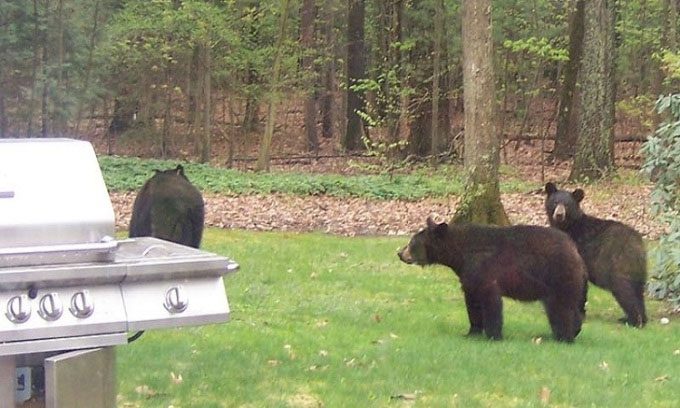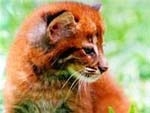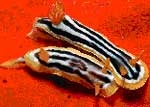Waking up after a long winter, the hungry black bear population in Connecticut is wandering in search of food, increasing the risk of encounters with humans.
The Connecticut Department of Energy and Environmental Protection (DEEP) advises residents to be vigilant about bears to minimize the risk of conflict with these large and powerful omnivores. The population and range of black bears are rapidly increasing throughout the state. Authorities estimate that approximately 1,200 black bears live in Connecticut. According to wildlife official Jenny Dickson, many bears are distributed in Litchfield and Hartford counties, while fewer bears inhabit the eastern part of the state.

Black bears wandering in Simsbury, Connecticut. (Photo: Courant.com)
Connecticut is renowned as a haven for black bears. Natural food sources such as acorns, skunk cabbage, and shrubs are abundant. The reproduction rate of black bears and the survival rate of cubs are both high.
Last year, DEEP received a total of 8,600 reports of black bear sightings in 156 out of 169 towns in the state, including Avon (634), Simsbury (622), Farmington (403), Granby (372), and Bloomfield (315). Hartford recorded 20 cases, according to DEEP. Most communities did not report any sightings in the eastern part of the state, including Bozrah, Franklin, Chaplin, and Sprague, but that does not mean these towns are bear-free.
Dickson emphasizes that residents need to learn how to coexist with bears and make necessary changes to keep them at bay. Bears often consume human-related food sources such as birdseed, garbage, and pet food. They can come very close to humans and rummage through homes in search of tasty treats.
As the bear population increases, conflicts with humans also rise. Bears attracted by food can pose a significant threat to public safety. They often damage homes and vehicles, prey on pets and livestock. Conversely, the number of bears being struck and killed by vehicles is also on the rise. “Bears should never be fed, whether intentionally or unintentionally. Preventing black bears from learning bad behaviors is entirely up to us,” Dickson stated.





















































